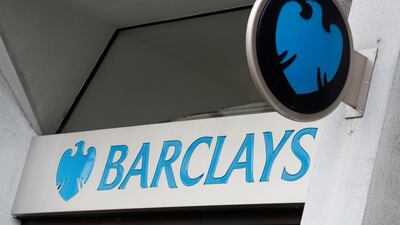A married couple duped by a fraudster into sending £700,000 ($952,665) of their savings to unknown accounts in the UAE have lost a legal battle against their bank.
UK lender Barclays successfully argued that it was not responsible for the loss of the money after the pair made two transfers, falling victim to the "sophisticated and malicious" swindle out of a mistaken belief that they were helping a fraud investigation.
Fiona Philipp, a music teacher, said the bank should have identified that the transfers of £400,000 and £300,000 were suspicious and alerted her to a potential fraud or halted the payments, which had "financially devastating" consequences.
The con man, posing as a senior investigator for the UK’s financial regulator, tricked Mrs Philipp and her husband, a retired hospital consultant, into sending the money to “safe” accounts while a non-existent investigation continued into alleged corrupt bank staff.
A caller identifying himself as Jonathan Watts claimed he was working with the UK's elite National Crime Agency, which investigates white-collar crime, in an inquiry that should not be revealed to anyone else.
So persuasive was the con man that the couple turned away a genuine police officer who contacted them to warn them they were at risk of being swindled.
The couple attended bank branches to make two transfers over three days in March 2018 to accounts in the UAE, while the con man listened in on an open phone line to ensure they did as he requested.
A transfer of £400,000 was made to an account in the name of Lambi Petroleum Limited at First Gulf Bank and a second of £300,000 to the account of Bonito Systems Limited at Emirates National Bank of Dubai.
Another planned payment of £250,000 to Lambi six days later was blocked after police contacted the bank to warn them of the fraud. A company of the same name based in Ras Al Khaimah was struck off in February 2019, according to the RAK International Corporate Centre website. There was no evidence of Bonito in public registers.
The couple only accepted they had been conned a fortnight later, after a third visit from police officers and the intervention of worried friends. Attempts to recall the money were unsuccessful.
British banks have come under pressure to reimburse victims of fraud after rising numbers of authorised push payment frauds, which involve fraudsters tricking their victims into making large bank transfers willingly.
The case involving the couple took place before banks agreed a voluntary code of conduct over APP frauds.
Banking industry body UK Finance said more than £200 million was lost in such frauds in the first half of 2020, but nearly £50 million was returned to victims.
High Court judge Jonathan Russen concluded that the pair were “completely under the spell of the fraudster”.
“One cannot reasonably feel anything other than acute sympathy for Mrs and Dr Philipp, who have fallen victim to the dishonesty of JW [Watts] and any of his partners in crime.
“They have lost a very significant part of their personal savings to the fraudster. However, it would not be fair, just or reasonable to impose liability on the part of the bank in respect of the APP fraud perpetrated upon Mrs Philipp.”


